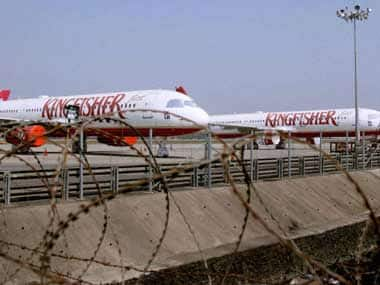New Delhi:Foreign airlines have been allowed to come in with a 49 percent stake, but where is the aviation infrastructure to support large-scale growth in the sector?
India has the most expensive pricing in aviation turbine duel (ATF), which means there is no cost advantage for even a well-funded global airline which might want to operate in the domestic sector in partnership with a local businessman. In an interview to The Economic Times , Civil Aviation Minister Ajit Singh has acknowledged that merely allowing foreign carriers to invest in India may not solve the problems which plague the Indian aviation sector.
“I agree it is not a panacea for our airline industry, because we need to resolve the issues of high cost that plague the sector. However, you have to look at this policy (allowing foreign airlines to invest in Indian carriers) from a long-term view. To help this market to grow and have a bright future for aviation, we need this policy,” Singh said.
[caption id=“attachment_456966” align=“alignleft” width=“380”]
 Kingfisher airlines is expected to look for foreign investors to bail them out, but will they find any? PTI[/caption]
Kingfisher airlines is expected to look for foreign investors to bail them out, but will they find any? PTI[/caption]
High costs are the biggest hurdle to any viable business in aviation. Another story in The Times of India today quotes Singh as saying that fuel costs need to be rationalised. The civil aviation ministry has already petitioned the Finance Ministry to bring ATF in the ‘declared goods’ category so that sales tax drops to 4 percent. At present, it ranges from 20-30 percent and varies widely from one state to another. Since fuel accounts for almost half the total cost of an airline, a spike in global prices immediately leads domestic oil marketing companies to increase ATF prices. This, more often than not, wipes out the wafer-thin gains airlines may make by raising prices at any point in the year.
Also, sources in the civil aviation ministry told Firstpost that the minister is commissioning a detailed study to find out how many times have global crude prices risen in, say, the past one year and how was this increase passed on to domestic airlines through higher ATF prices. He has asked for data on whether the quantum of increase in ATF prices matches the quantum of increase in global crude prices - perhaps the minister wants to underline the fact that the entire pricing mechanism of ATF is not really transparent and thereby there is a need to rationalise prices somewhat.
Impact Shorts
More ShortsATF prices apart, there seems to be no immediate compulsion for foreign airlines to rush into India because our airlines are in a pretty bad shape financially. The Centre for Asia Pacific Aviation’s (Capa’s) South Asia Director, Kapil Kaul, says that “Carriers from the Gulf as well as the likes of IAG (which owns British Airways), Lufthansa and Singapore Airlines have all been watching the sector with interest and informal discussions have taken place in several cases. But the balance-sheets of most of the incumbent carriers are relatively weak, and the sector faces numerous structural challenges, so foreign airlines will make their own assessments about whether they consider a carrier to be a suitable investment at this time. Just because they are now allowed to invest does not necessarily mean that they will…….also, not all Indian carriers are actually seeking a strategic partner.”
So are we rejoicing too soon? Not really, since there can be no smoke without fire. SpiceJet has been open about negotiations with a Gulf-based carrier (many say its Qatar) and Kingfisher Airlines Chairman Vijay Mallya also keeps talking of negotiations with a strategic investor. Even GoAir could be a potential joint venture with a global airline.
But there could still be surprises. Kaul says if the government is serious about granting new licences to well?funded, professional start?ups, “we could, in due course, see the launch of greenfield joint ventures by carriers such as AirAsia, Jetstar and Tiger Airways.” And a serious restructuring and turnaround of Air India will surely require the support of a strategic partner. Allowing foreign airlines to invest in India may bring in capital and expertise into India and Kaul notes that “as a result of its presence, other institutional funding may also feel more confident about investing alongside.”
But as things stand now, FDI in aviation is a mood enhancer, a Prozac solution, not a cure.
)